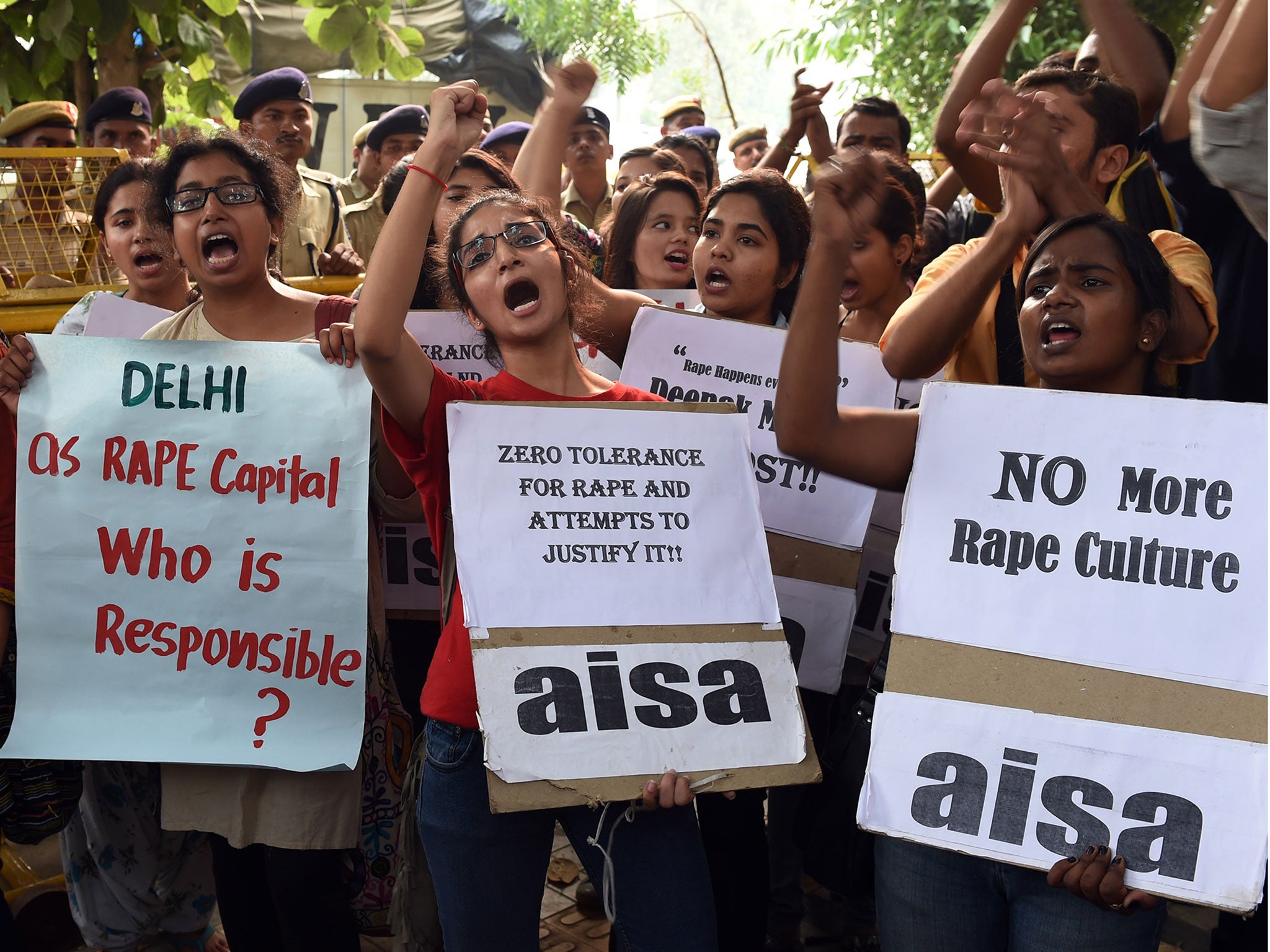If you didn't believe in rape culture before, maybe you will now
It’s the man who jabs his hand up your skirt on the night bus. It’s everyone ignoring your cries of horror and surprise because it looks like a domestic issue to them, and that’s none of their business. It’s your 14-year-old sister and her friends calling each other sluts


There is a constant, gnawing suspicion inside of almost every woman that her body isn’t really her own. How could it be, really, when you think about it? Take a look at every bikini-clad model asking if you’re ‘beach body ready’ on a billboard, every token female superhero bent over to show how her cartoon bum looks in her skintight suit, every pregnant shopper whose belly is being patted by a line of outstretched hands in Asda, and you’d be forgiven for thinking that female bodies are actually public property.
That’s why I was saddened but not surprised this week to read that the amount of rape reports leading to charges has fallen dramatically. While the actual number of people going to the police has risen, the prosecution rate remains dismally low: 12 per cent, down from a similarly disappointing 17 per cent rate last year. The numbers should speak for themselves, but if they don’t, let me be clear: the situation on sexual violence in the UK is completely unacceptable.
It’s worth bearing in mind that the upsurge in people feeling confident enough to report rape in the first place is encouraging. But it was 2015 when Sussex Police ran a ‘safety campaign’ which used posters, complete with pictures of young girls taking selfies together, bearing the immortal words: ‘Which one of your mates is most vulnerable on a night out? The one you leave behind. Many sexual assaults could be prevented – stick together and don’t let your friend leave with a stranger or go off on their own.’
The idea that a police force thought rape could be eradicated if we just stopped women ‘going off on their own’ and sadly illustrates why prosecutions are statistically at an all-time low. The cultural change that has empowered women to fight back against the poisonous idea that our bodies don’t really belong to us is all very well and good – but if the criminal justice system won’t modernise with us, we’ll never be able to get that far.
What is ‘rape culture’, that much-discussed and much-ridiculed concept? It’s not the belief that all men are rapists – far from it – but it is the idea that society forgives rape against women, and trivialises it. It’s your university boyfriend coming home from a night out, drunkenly holding you down and telling you he’s going to have sex with you now, whether you like it or not, because he loves you. It’s your husband doing the same ten years later because you’re married and that’s the way it is. It’s keeping quiet while he does it because you don’t want to wake the baby. It’s the boy at a party who offers you drinks then follows you to the bathroom, locks you in and says you owe him something in return.
It’s the man who sits next to you on the night bus and suddenly jabs his hand up your skirt. It’s everyone ignoring your cries of horror and surprise because it looks like a domestic issue to them, and that’s none of their business. It’s your 14-year-old sister and her friends calling each other sluts on Facebook. It’s a playground full of 9-year-olds saying the same thing.
It’s the accumulation of endless Playboy Bunny pencil cases, thongs in children’s sizes, school uniform policies aimed at ‘not distracting the boys’, women in bikinis used as decorations for fully-clothed male celebrities on magazine covers, ‘Barely Legal’ strip clubs offering dancers in their late teens to middle-aged men in suits for money. It’s Jack the Ripper being titillation and entertainment, so why not take a Halloween selfie with mock-ups of his mutilated victims at the Ripper Museum? It’s being told to chill out when you feel uncomfortable.
It’s not having the confidence to report a rape because you might be the wrong kind of victim. It’s finding the nerve to do it and watching the officers’ eyes drift knowingly to your cleavage. It’s dredging up the last vestiges of mental strength inside you to go over the details, to relive the trauma, to believe that your body and your mind are worth something despite all evidence to the contrary. And then, after the whole exhausting process, it’s a letter in the mail telling you we’re very sorry, but the crime you reported won’t be investigated any further.
Join our commenting forum
Join thought-provoking conversations, follow other Independent readers and see their replies
Comments
Bookmark popover
Removed from bookmarks